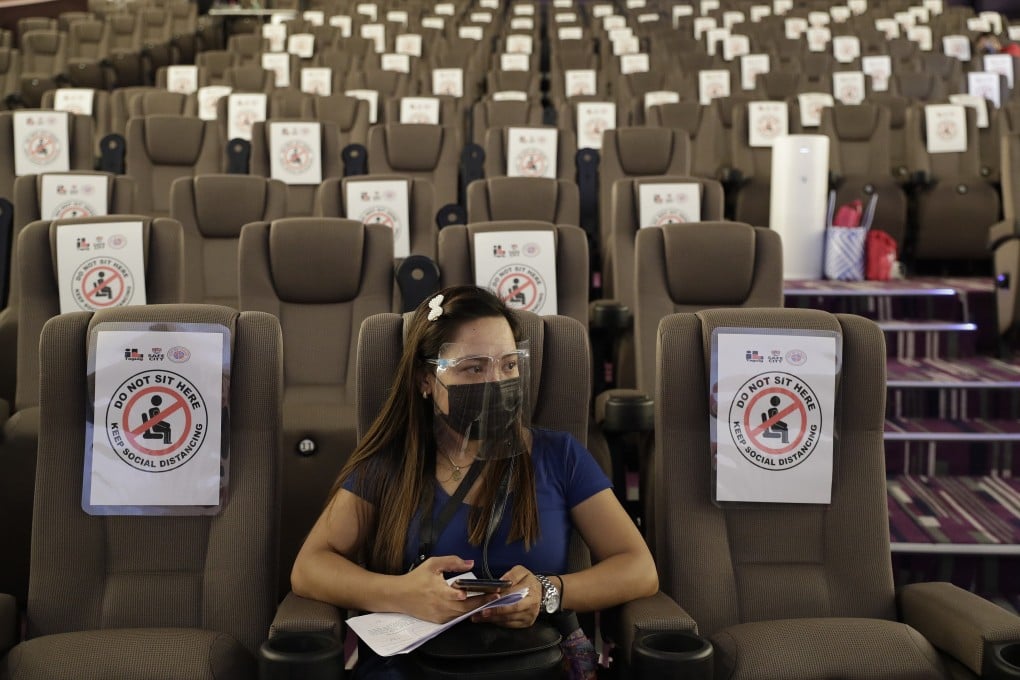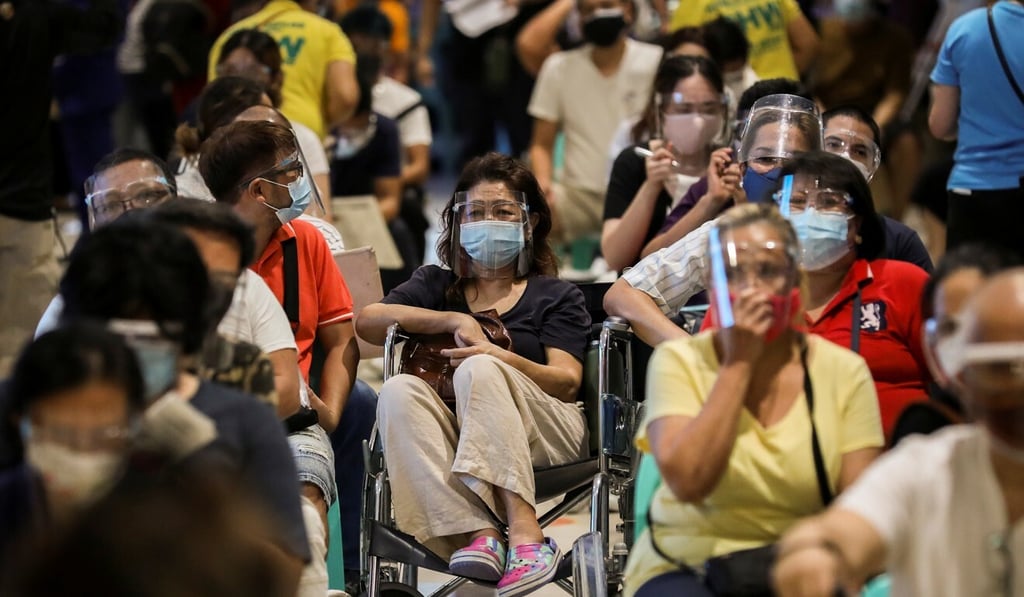Most Filipinos don’t want a coronavirus vaccine. Especially not a Chinese one
- President Duterte has moved to stop people choosing what brand of jab they receive after a clinic giving Pfizer jabs was swamped. Meanwhile people are missing appointments at centres offering Sinovac shots
- But politicians including Christopher “Bong” Go warn that choice could be crucial for overseas workers whose host countries prefer the Western vaccines

On May 17, a vaccination centre in Parañaque City, Metro Manila, was swamped by members of the public when word got around it was administering jabs from Pfizer.
Media reports showed long lines of people disregarding social distancing forming at the centre, with even people who did not have an appointment showing up.
In comparison, vaccination centres offering shots made by the Chinese company Sinovac have reported few takers and people not showing up for appointments, resulting in a surplus of vaccines at the end of each day.

Dr Anthony Leachon, a former senior adviser to the country’s Covid-19 task force, said: “I think it’s the track record of [American drug companies] for producing quality medicines proven for efficacy and safety. Their product is a result of excellent research and development.”
According to ABS-CBN News, the Philippines has 5.5 million Sinovac jabs, 2.5 million AstraZeneca doses, and 193,000 Pfizer shots.